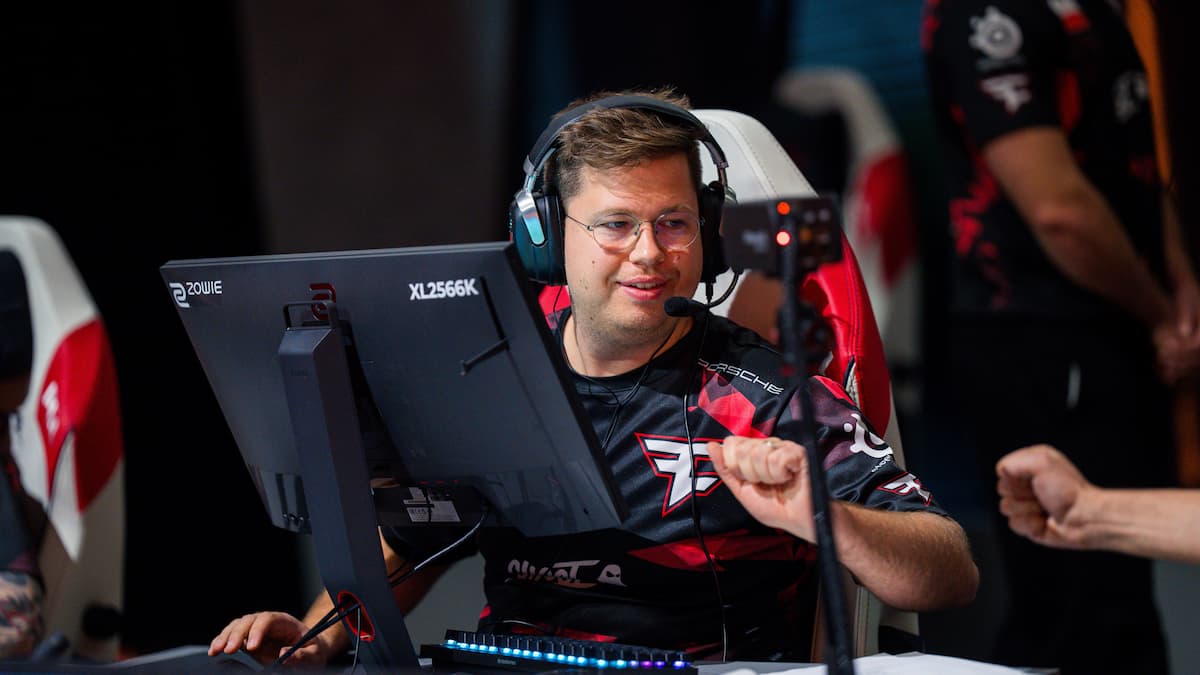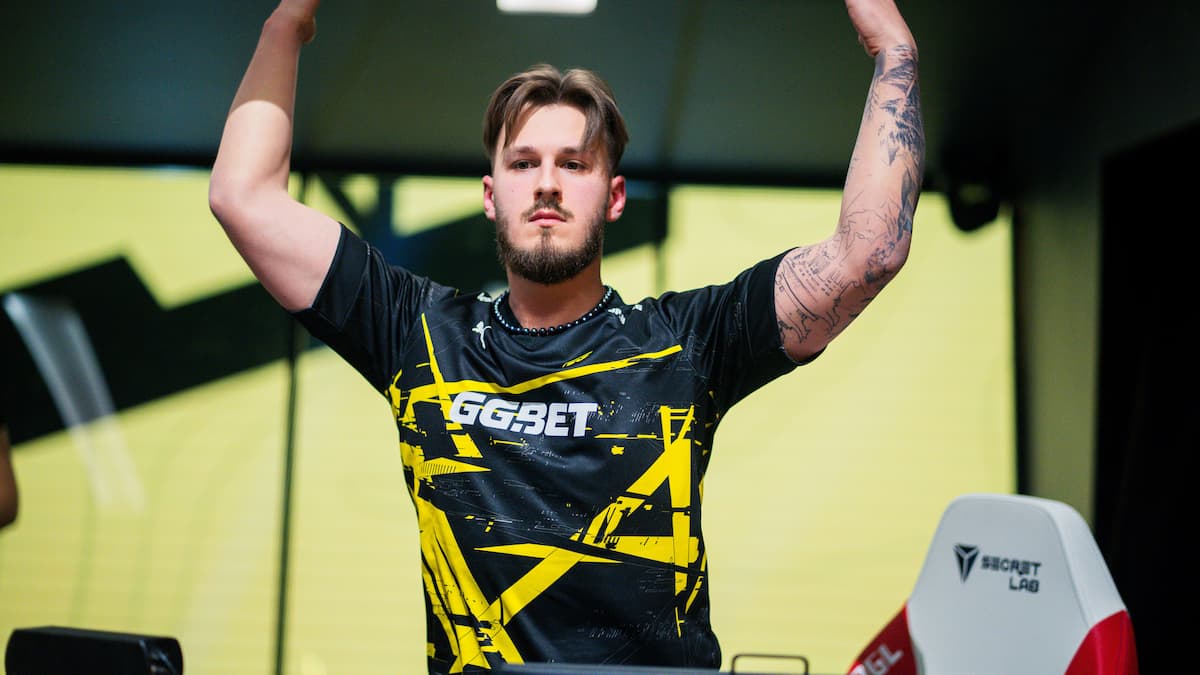A week ago, Fnatic’s Counter-Strike: Global Offensive team withdrew from DreamHack Winter amid an ongoing controversy dubbed “boostgate.”
All things considered, the decision seemed smart. The tournament started just a week after a number of high-profile players were banned for cheating and as allegations swirled about Fnatic players. Then, on the ropes about to lose to LDLC, the team used a questionable boost which they had a hand in hiding from game developers for two months. This was an incredible oversight, one that turned the stomachs of those who witnessed it, fans and commentators alike.
The situation could have easily have been defused. The teams could have just replayed the second half of the game. If Fnatic had agreed to this, it would have been seen as a spectacular act of fair play: To try to come back from 13-2 down and thus simultaneously acknowledge the boost was an unfair, although innovative, gamble. Even the most ardent, anti-Fnatic fanatic would have to acknowledge the sportsmanship. When amplified through the power of social media, the prevailing story would have ended up positive. The cheating accusations could have evaporated. Fnatic would have been known as the team who’s rather try to come back against impossible odds than gain an unfair advantage.
Instead, the players high-fived each other as if they’d just done something as remarkable. Then, when admins agreed the half should be replayed, the team filed a mostly bogus complaint, claiming LDLC used a similar (but not as potent boost) for two rounds to ensure the whole map had to be replayed.
These weren’t the actions of a team that believes in sportsmanship. They were the actions of one that believes in winning at all costs.
Fans reacted with an outpouring of vitriol, including an email campaign that targeted the team’s sponsors. It was enough to finally wake up the management. The team withdrew, writing in a statement: “With tremendous respect towards the CS:GO community and other teams we have decided to withdraw from the tournament.”
It should have ended there. It didn’t.
For some reason, Fnatic players seemed intent on portraying themselves as victims. Social media suddenly became awash with activity from the Fnatic camp—especially strange considering how quiet they’d been when statements really were needed. The team coach, the usually moderate Jonatan “Devilwalk” Lundberg, added to the chorus, criticizing the critics: “when all of u figure out what u have done…I pray to GOD u can live with yourselves.” I imagine for the most part we can.
The targeted , Robin “flusha” Rönnquist, finally piped up on Facebook, writing one of the most ill-advised statements in esports history. “The last thing i would like to say is that this community is a fucking joke” he said. That completely flew in the face of the team’s earlier statement that it had “respect towards the CS:GO community.”
He continued: “I love esports and the joy you can get out of it, the only problem with it is the community and all that they bring, this is why i have never cared about the community…”
Indeed, it’s worth pointing out to Rönnquist (as the veteran pundit Scott “Sir Scoots” Smith did) that he was participating at an event made possible through community funding. The team also were beneficiaries of money from in-game merchandising purchased by that same community. It was that community that’s made Counter-Strike: Global Offensive the most viewed tournament at DreamHack Winter that weekend and has propelled the game to the forefront of esports, something that will ensure even more financing in 2015. If there’s a joke in there, the punchline is that those same people put money in his pocket.
Freddy “KRiMZ” Johansson would then go on to cryptically tweet “GG,” hinting that the team may be disbanding. I think the narrative we’re supposed to believe at this point, if we were to only go on the Fnatic social media campaign, is that our collective mob mentality has destroyed one of the world’s greatest teams. They think we should be ashamed.
That guilt campaign might work on a few people. But we know this would have been utterly avoidable if the team and their management had exercised some common sense. First, allowing the cheating accusations to snowball with no official statement addressing them was a rookie error. There are some things that can’t be killed with silence and allowing the “evidence” to be amassed without any input missed out on the potential for maximum sympathy. Second, it was another missed opportunity to prove their honesty, with DreamHack making a show of how difficult it would be to cheat at it event. Third, and this seems to be something that the organization seem oblivious to, had boostgate not occurred, or even had they not tried to dupe LDLC out of a fair replay of the half, we would not be where we are now.
Whatever the outcome, there are still going to be some unanswered questions about Fnatic players, and in particular Rönnquist. The amassed video evidence has some incredibly suspicious moments, where his crosshair seems to snap towards unseen opponents in a smooth straight line before moving off at another tangent at a different speed. Rönnquist has said he’s just lifting his mouse when the full space he has available to him has been used. If that’s true, than all the videos are purely coincidental. That isn’t beyond the realms of possibility. But, logically speaking, persistent coincidence is less likely than the alternative explanation: cheating.
I’m an advocate of the concept of innocent until proven guilty. But I don’t think it’s wrong for anyone in the community to ask questions of Rönnquist and expect a more satisfying explanation, especially in a climate of professional players being outed as covert cheaters. People don’t seem to understand: “innocent until proven guilty” comes with qualifiers. Say a criminal is caught in the act, on video, with witnesses placing him on the scene, and he can’t proffer a plausible alibi. Well, then the phrase becomes little more than a worthy principle.
It can also be rendered laughably meaningless. Take the case of Barry Bonds in baseball. Bonds holds the record for the all time number of career home-runs, above legends like Willie Mays, Babe Ruth and Hank Aaron. This should make him one of the most respected sportsmen in the world, revered by his fellow Americans and held up as an example to all other aspiring stars. He’s not. Bonds is a cheat, a liar and a fraud and his success is predicated on those qualities above all others.
Bonds went from a 185 pound, lithe athlete in 1993 to a 228 pound musclebound brute by 2003 and attributed all of it to a new weight training regimen. When people cried steroids, he denied it, applying some fairly impressive mental gymnastics and stretching the English language close to its breaking point to explain the changes. When his personal trainer was recorded saying that Bonds was using an undetectable performance enhancer, he later denied that it was his voice. When one of Bonds’ former girlfriends said that he admitted to using steroids, it was rejected as malicious.
In 2006, two reporters published a book chronicling Bonds’ drug and steroid use, as well as how he used Human Growth Hormone, which wasn’t subject to testing. Other professional players soon came tumbling out of the woodwork, most notably hall-of-famer Ken Griffey Jr., saying Bonds had told them he was going to use steroids. During all this time, Bonds passed every drug test. But his fellow pros considered his record-breaking achievements something of a bad joke.
It took until 2011 to get anything close to a resolution for the matter. Following several investigations and a perjury trial, his lawyers said that Bonds did use steroids but did so unknowingly. Assistant U.S. Attorney Matt Parrella called such claims “ridiculous and unbelievable.” But that’s the version everyone is left with, even to this day. Despite the physical evidence and the mass testimony, it’s unlikely Bonds will ever be found guilty of something he undoubtedly did thanks to flimsy testing methods. Innocent until proven guilty—fine. But the mechanism used to determine guilt is fundamentally broken.
There are parallels between that case and the cloud surrounding Fnatic, if you want to see them. And, likewise, the boat with a definitive answer is now sailing off into the oceans of apathy. Still, there’s something fundamentally distasteful in pretending there is no case to answer, despite footage that’s convinced fellow pros that something is amiss and the fact that no player outside of Fnatic has been similarly exposed.
All this talk of “witch hunting” is the same language used to portray anyone questioning official government statements as half-mad drooling conspiracy theorists. Witches don’t exist, cheaters do and recent events confirm they are in the upper echelons of our game. Even if you are innocent you should surely forgive people asking the type of questions that would have unearthed those guilty a lot sooner than anti-cheat protections did.
That same forgiveness should be extended to a community who want their games to be decided by displays of skill, not the most effective use of exploits. If the reaction of their fellow players was anything to go by, they feel the same way. Patrik “f0rest” Lindberg, known for being someone who likes to stay out the public eye, tweeted “this isn’t CS” as the semi-final limped to it’s awkward conclusion.
This isnt CS…
— Patrik Lindberg (@f0restCS) November 28, 2014
Only a month or so before all this, Fnatic were being lauded for their sudden rise to the top. Sure, events outside their control cast a critical spotlight on the team. But once it was there they failed to act in the smart way at almost every opportunity. The last week of passive aggressiveness—or in Rönnquist’s case, outright aggressiveness—shouldn’t sit easy with anyone.






Published: Dec 9, 2014 12:26 pm